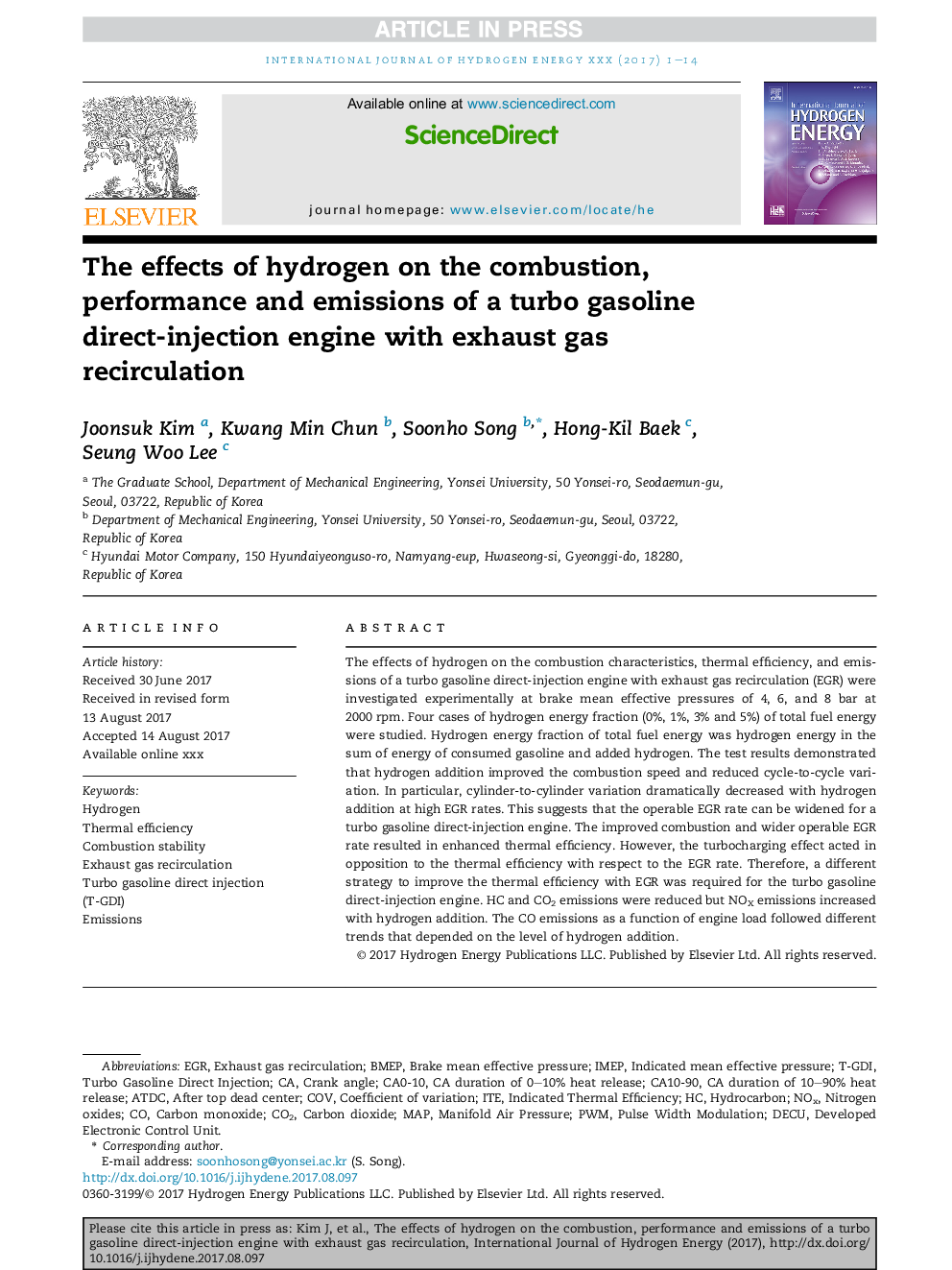| Article ID | Journal | Published Year | Pages | File Type |
|---|---|---|---|---|
| 5145137 | International Journal of Hydrogen Energy | 2017 | 14 Pages |
Abstract
The effects of hydrogen on the combustion characteristics, thermal efficiency, and emissions of a turbo gasoline direct-injection engine with exhaust gas recirculation (EGR) were investigated experimentally at brake mean effective pressures of 4, 6, and 8 bar at 2000 rpm. Four cases of hydrogen energy fraction (0%, 1%, 3% and 5%) of total fuel energy were studied. Hydrogen energy fraction of total fuel energy was hydrogen energy in the sum of energy of consumed gasoline and added hydrogen. The test results demonstrated that hydrogen addition improved the combustion speed and reduced cycle-to-cycle variation. In particular, cylinder-to-cylinder variation dramatically decreased with hydrogen addition at high EGR rates. This suggests that the operable EGR rate can be widened for a turbo gasoline direct-injection engine. The improved combustion and wider operable EGR rate resulted in enhanced thermal efficiency. However, the turbocharging effect acted in opposition to the thermal efficiency with respect to the EGR rate. Therefore, a different strategy to improve the thermal efficiency with EGR was required for the turbo gasoline direct-injection engine. HC and CO2 emissions were reduced but NOX emissions increased with hydrogen addition. The CO emissions as a function of engine load followed different trends that depended on the level of hydrogen addition.
Keywords
ITEPWMIMEPCA10-90EGRBMEPaTDCNOxCOVEmissionsNitrogen oxidesIndicated thermal efficiencythermal efficiencyafter top dead centerbrake mean effective pressureCombustion stabilityCarbon dioxideCrank AngleCoefficient of VariationPulse width modulationcarbon monoxideIndicated mean effective pressuremapHydrogenhydrocarbonCO2exhaust gas recirculation
Related Topics
Physical Sciences and Engineering
Chemistry
Electrochemistry
Authors
Joonsuk Kim, Kwang Min Chun, Soonho Song, Hong-Kil Baek, Seung Woo Lee,
